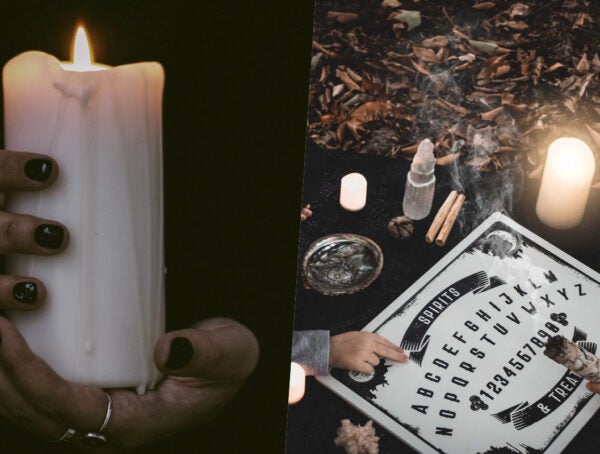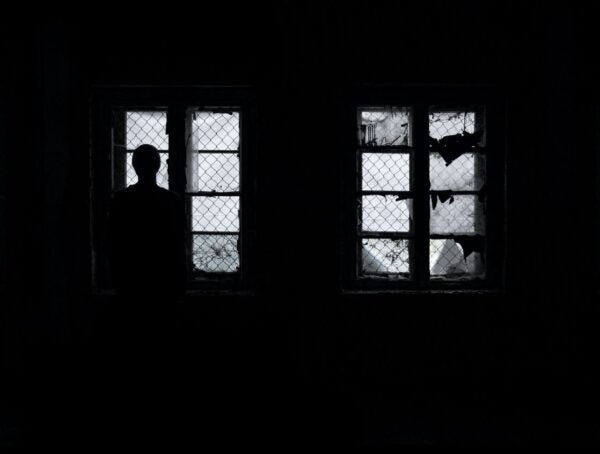Disclaimer: In Real Life is a platform for everyday people to share their experiences and voices. All articles are personal stories and do not necessarily echo In Real Life’s sentiments.
It was a hot day mid-February 2020. We’d just done a hike around Bang Krachao, a tiny man-made island in the middle of Bangkok. We were thirsty and tired and had ordered iced coffee at the first air-conditioned cafe we spotted.

“The Wuhan virus! Did you hear? People are getting sick! Came from a market selling exotic meats!”
The old man sitting at the doorway smiled at us, grinning so widely that I could count all the missing teeth in his mouth. He’d spotted us and decided to strike up a belligerent one-sided conversation. I glanced at my boyfriend, and his face said, let’s get out of here.
As we hurried out of the cafe, an uneasy voice at the back of my head whispered, didn’t SARS also start out similarly?
In the next few weeks, news outlets began reporting an infection rate with an unusually high death toll. Yet, most locals in Thailand were still in denial and in disbelief that it would ever affect us, thousands of miles away in a different country. I shrugged, thinking, meh, our travel plans for 2020 did not include China anyway.
In March, I flew back to Malaysia for my father’s birthday. While in Kuching, I met up with an ex-classmate who was also back to visit family. Over lunch, we talked about how the Malaysian government began issuing statements about a lockdown to curb the infection rate.
I flew back to Bangkok the next day, and less than 24 hours later, Malaysia shut its borders and all international flights were abruptly cancelled. The pandemic had gone from a distant threat to an immediate emergency.
Many of my friends had to cut short their plans to see friends and family; I thought I was one of the luckier ones. How wrong I was.
We were exposed to someone who had the virus
Those first few days were surreal. All of us thought that these restrictions would be temporary, that it would just be a month, at most…

Some malls began setting up ‘sanitising gates’ at the entrances
But as the infection rate shot up globally, our calls back to our increasingly-anxious parents — all in the high-risk group — left us wracked with guilt, feeling so far away, and so helpless.
2020 was supposed to be the year we would be better at spending time with our ageing parents; especially his father, who is in the middle stages of Alzheimer’s. But now, all our plans were scrapped.
And then, things struck even closer to home. Some people at my partner’s co-working space were tested positive for the virus.
I got really, really sick, that week, but I will never know if it was just your garden-variety flu bug or something more substantial. Perhaps it was even just a psychosomatic manifestation of my fears.
I decided to just stay put at home and ride out the symptoms. We did the responsible thing and self-quarantined for two weeks, despite the fact that Thailand had yet to announce any movement restrictions.
I spent a feverish week terrified of falling asleep — my congested lungs triggered the constant anxiety that I might somehow asphyxiate while unconscious.
I also fell into a spiral of severe guilt. There were many aged beggars living on my street, some of them missing limbs. I would often give food and money to them as I walked past. The idea I might have inadvertently caused the deaths of those poor unfortunates horrified me.

As foot-traffic decreased, beggars relying on the kindness of strangers began looking increasingly desperate
The fact that I’m typing this out means that whatever that was, I did eventually get better. It was still a harrowing experience.
Our visas started to run out
Just as I was getting better, we were suddenly faced with another crisis. Like thousands of other people, overnight, we found ourselves in a quandary: our visas were running out.
Quickly, almost too quickly for us to formulate any plans, governments were imposing movement restrictions. International borders rapidly shut down, much like lights blinking out one by one, along with all the options we had for our visa renewal.
I half-jokingly told friends we were now “refugees” but we really did live in uncertainty and fear for months. Everyday, I would wake up on the verge of panic, fearful of yet another announcement to make our lives complicated.

Our lives began revolving around our visa extensions
There were difficult decisions to make. I had a rapidly shrinking window of opportunity to go back to Malaysia, but there were no guarantees that I could be reunited with my partner back in Thailand if I did so.
To complicate matters, his British passport was running out of pages, which made visa renewal impossible. The British embassy in Thailand had shut temporarily, presumably to find new ways to handle this unprecedented crisis.

The immigration office in Bangkok, filled with many displaced non-residents
I felt scared and lost most of the time, especially when the curfew was imposed.
Living in the bustling business district of Sukhumvit, it was jarring to wake up one morning, and look down upon empty streets.

As the streets emptied, the homeless sat around in utter incomprehension
During Songkran, the water festival that heralds the Thai New Year, I gazed down upon the city from my apartment on the 25th floor and was struck by a deep sense of despair. The scene down below could be from a post-apocalyptic zombie movie — instead of joyful celebration, it was utterly devoid of any sign of life.
I wept a lot and had to stop looking at social networking sites; my anxiety ramped up many notches as the agonising weeks, months crept past slowly and the infection rate remained unwaveringly high. It felt like there was no end in sight for this global pandemic.
Then, slowly, slowly, the infection rate in Thailand began to drop. The restrictions began to lift and life went back to some semblance of normalcy. Restaurants and cafes started filling up with people, malls were lively again.
I managed some domestic travel, visiting local attractions in Ayutthaya, Khao Yai, Kanchanaburi, Koh Samet, Koh Chang. I’m aware that it was a luxury many of my friends in other countries did not enjoy.

As restrictions eased up a little, we managed some trips to local destinations
I still missed my family, but this wasn’t too bad, I thought to myself.
And then my grandfather took a fall and broke three ribs.
At first we were optimistic that he would recover — he was always so strong, so vital. The days crept past, yet he did not show signs of recovery. His advanced age, plus the unimaginable pain he was in did not encourage quick healing.
For six weeks, medical staff kept him alive, draining his punctured lungs as he begged for a more dignified passing.
During that time, I agonised over my options. Should I go back, do a two-week quarantine, and hopefully still have enough time to see him? But there was the omnipresent concern that I would end up being stranded in Malaysia, especially as cases in my home country began rising again.
The other option was to stay put in Thailand and hope for the best. I tried to remain optimistic, but the sense of inaction left me feeling frustrated and helpless.
Friends and family advised me not to be hasty, not to make an emotional choice that was not pragmatic. My loved ones reasonably pointed out that as long as I remained in Bangkok, I would be mostly safe from the risk of infection.
Don’t give up your life in Thailand, my parents urged.
Even my grandfather tearfully told me over video call that he had no desire for me to return just to witness his emaciated state. He added that he was happy that all his grandchildren were doing well and thriving, despite the distance.

Still, I spent many waking moments contemplating returning to Malaysia, feeling increasingly distressed and selfish for being so far away. It was hard to imagine that the grandfather who doted on me for most of my childhood now laid in a hospital bed, frightened and in pain.
While I was trapped in this cycle of indecision, my family decided to respect his request to be taken off life support. Before I could even make the arrangements to fly back, my beloved grandfather slipped away, mercifully painlessly, among loved ones.
I won’t say that didn’t hurt. I was truly devastated. I never thought I would feel much attachment for the city I was born in, and had always been more attracted by the prospect of new experiences. On that day, however, I truly felt the distance between myself and my hometown for the very first time.
And as with every other aspect of life since the coronavirus appeared, even his wake and funeral took an unprecedented turn of events. We had to livestream the ceremonies over Facebook, as so many members of our family were scattered around the globe.
The pandemic has increased the level of anti-foreigner feeling in the country
2020 has been some of the roughest times for us, and as we enter 2021, things still remain as uncertain as they did in the previous year.
As I write this, many provinces in Thailand are scrambling to reinstate various safety measures — there were no new cases of infection for months, but then, December saw a dramatic spike in new cases.
Many of these were migrant workers who had entered the country without proper quarantine measures, and the occasional returnee from abroad. A wave of paranoia has begun spreading among the locals, as expected.
The Thai economy has suffered badly with the collapse of the tourism industry, and the country has been cautiously introducing long-term tourist visas since October 2020, in a bid to boost the economy a little.
Unfortunately, due to the fear of disease brought in by foreigners, there has been a slight but palpable increase in hostility towards foreign-appearing people in the country. I have mostly been exempt from this, as I can often pass for local, but some of my friends have been less lucky.
Due to the pandemic, I haven’t been back to Malaysia since March 2020.
I miss my family deeply. All this has served to remind me how much they mean to me, and how I should seize the present moment to tell the people who matter how much I love them.
My partner and I also passed the ultimate relationship test: of spending a prolonged duration together in close confines — in a 58-square metre (624-square feet) space no less. And we made it through without resorting to homicide!
Honestly, if not for the difficulties in obtaining all the necessary documentation in the current climate, we would have gone ahead and gotten married by last month.
Ironically COVID was probably crucial in leading to that decision: after months of supporting each other through the uncertainty of being almost-refugees in this unusual situation, we decided that we really do make quite a good team together.
2020 has been a strange and difficult year, and none of us have any real idea yet on how to navigate 2021, but I strive to remain hopeful. Despite all the restrictions and fear that came with this global pandemic, humankind has learnt resilience and adaptability.
Yes, there have been racist sentiments, and plenty of irrational, selfish behaviours during the initial panic… But there have also been many instances of kindness and altruism.
Perhaps, after the chaos and the incomprehension of 2020, this new year will be one where we learn how to come together, and slowly rebuild.
For more stories like this, read: A Balloon Popped, And My Friend Had A PTSD Meltdown – If You Love Them, Learn The Triggers and I Used To Work In A Haunted Hospital. Here’s What Happens Late At Night.
To get new stories from IRL, follow us on Facebook & Instagram.
You might also like
More from Real People
‘A RM100 fee cost a company 5 years of revenue’ shares M’sian
This story is about a Malaysian who learned that bureaucracy can be defeated simply by not arguing with it.A billing …
‘I quiet-quit, upskilled, and tripled my salary,’ shares M’sian engineer
This story is about a Malaysian who learned that loyalty without leverage leads nowhere in the corporate world.After years of …
‘I did everything right, and it still wasn’t enough’ shares M’sian graduate
This story is about a Malaysian graduate navigating big dreams in a job market where a degree no longer guarantees …


















